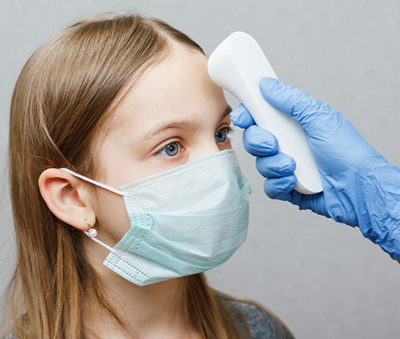Fever is the rise in your body temperature above 100.4 F or 38 C and is usually due to an illness. The height of temperature may vary depending on the way you have taken it, for example oral, ear, armpit, forehead or rectal.
Although the most accurate method is oral or rectal temperature, it is easier to take it from the ear or armpit.
Fortunately, the most common causes of fever in children are viral infections which are short and self- limited like common colds and flu, upper and lower respiratory infections, stomach bugs and also after vaccinations.
You should worry about fever and seek medical attention:
- When your child is 3 months old or younger even with low grade temperature like 100.4 F or 38C
- When fever lasts more than 3 days or more regardless of height of temperature
- When fever is high grade e.g. over 102.2 F or 39 C
- When the fever does not respond to antipyretics especially if your child has other medical problems like heart disease, cancer or immune compromised condition.
- When your child is delirious, lethargic, hard to arouse or not drinking enough fluids
- When your child is urinating less or changing his diapers less often
- When your child is vomiting frequently and cannot keep fluids or food down or having frequent diarrhoea or abdominal pain
- When your child has persistent cough with or without difficulty breathing
- When your child is outside playing under the sun for a long period of time and coming back home vomiting and lethargic
- When your child has new skin rash
- When your child is ill-appearing and not interested in playing
- When your child has abnormal body movements or convulsions
On the other hand, it is reassuring when your child is playful, active and has normal appetite so you can continue monitoring his temperature and other symptoms.
In the meantime you can offer your child a proper dose of Paracetamol every 4 hours as needed when temperature is low grade or a dose of Ibuprofen on a full stomach every 6 hours as needed when temperature is high grade.
Of course whenever you have any concern about your child’s health, you may consult the primary care physician or visit the emergency department for crucial cases.

